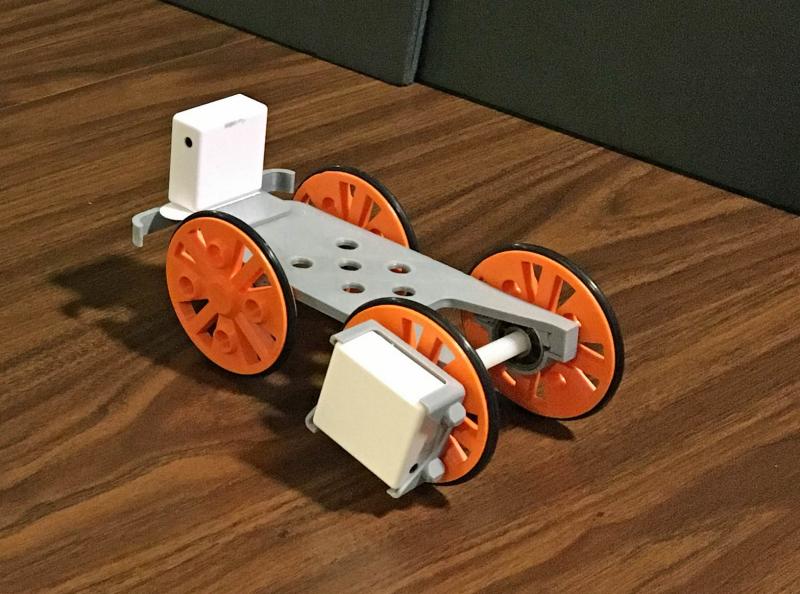Two Voyagers Connected to a Single Device via Phyphox: An Experiment to Determine a Cart’s Wheel Radius
It would be nice if one could connect two (or more!) Voyagers to the same device—say to an Android device or an iOS device running an app that could display concurrent data collection from both Voyagers. Such a capability is possible by the use of Phyphox (physical phone experiments), an app developed at the 2nd Institute of Physics of the RWTH Aachen University in Germany. The author of this lesson has been working with a pre-release Android version of this app that supports BLE (Bluetooth Low Energy) technology to transfer data from multiple Voyagers to the Phyphox app. A public Android beta of Phyphox has since been released. The phyphox file Determine Wheel Radius.phyphox accompanies this lesson.
In this lesson, an experiment with a single cart is discussed. Upcoming lessons will consider the collisions between two carts. Many teachers have made use of PocketLab’s VelocityLab app to study position, velocity, and acceleration by attaching PocketLab to the wheel of a cart. This app is able to compute these parameters because the diameter of the wheel is supplied by the user as input when the app is started. The experiment of this lesson involves the reverse of this process. Students use one Voyager, attached to the top of the cart, to collect position data from the rangefinder. Another Voyager, connected to a wheel, is used to collect angular velocity data. By analyzing the data collected by Phyphox, the student then determines the radius of the cart’s wheels. Clearly, this experiment requires the use of two Voyagers, as one cannot collect acceptable rangefinder position data from a Voyager rotating on the cart’s wheel.

